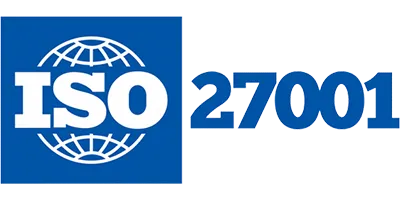Are you from the manufacturing industry & looking for Salesforce ERP integration services?
Salesforce and Enterprise Resource Planning software, a.k.a ERP, are the two most powerful tools in the business world. On the one hand, one is the world’s number one Customer Relationship Management system, and on the other hand, we have options like SAP, Oracle, and Microsoft Dynamics that help businesses keep up and running.
Together, both these software empower businesses with operational efficiency, enhanced customer satisfaction, and holistic growth.
For the manufacturing industry, it is essential to have these two solutions work in sync. Unfortunately, Salesforce & and ERP cannot work together without proper integration.
Salesforce ERP integration has become the talk of the town of the businesses in the manufacturing industry because they want a solution that can help them maintain strong customer relationships while bolstering business processes.
Let’s move ahead and understand more about Salesforce ERP integration and its significance for the manufacturing industry.
Significance of Salesforce Integration for Manufacturing Businesses
Salesforce Integration holds immense significance for manufacturing businesses by seamlessly connecting disparate systems and processes.
- It streamlines critical operations like supply chain management, inventory control, and customer relationship management, leading to enhanced efficiency and productivity.
- By consolidating data from various sources into a unified platform, manufacturers gain real-time insights, enabling better decision-making.
- Moreover, it fosters improved communication with customers, suppliers, and partners, resulting in more responsive customer service and stronger B2B relationships.
- Ultimately, Salesforce Integration empowers manufacturing businesses to adapt swiftly to market changes, optimize resource allocation, and remain competitive in a rapidly evolving industry.
Significance of ERP Integration for Manufacturing Businesses
ERP Integration is of paramount significance for manufacturing businesses as it brings coherence and efficiency to complex operations.
- By seamlessly integrating enterprise resource planning (ERP) systems with various departments such as production, inventory management, finance, and human resources, manufacturers can achieve real-time visibility into their entire operation.
- This enables better decision-making, optimized resource allocation, and reduced operational costs.
- Furthermore, it promotes data accuracy and consistency across the organization, minimizing errors and streamlining processes.
- ERP Integration empowers manufacturers to adapt to market changes rapidly, improve supply chain management, and enhance overall productivity, ensuring they remain competitive and agile in an ever-evolving industry.
Unlocking Manufacturing Success: Salesforce-ERP Integration
In the dynamic landscape of manufacturing, where precision, efficiency, and real-time insights are paramount, the integration of Salesforce and ERP systems emerges as a game-changer.
This integration streamlines –
- Operations
- Enhances productivity
- Fosters data accuracy
- Set the stage for manufacturing excellence
Salesforce has prominence in managing customer interaction. It also helps businesses track leads and monitor sales. However, it cannot help manufacturers streamline internal processes such as inventory management, financial planning, and production, which ERP provides.
The integration of ERP and Salesforce can bring the best of both worlds in one place. As a Salesforce Gold Partner, we understand the needs of manufacturing businesses and provide tailored solutions.
Significance of Salesforce and ERP Integration for Manufacturing Businesses
Salesforce and ERP integration is of paramount significance for manufacturing businesses, as it offers a transformative impact on their operations. Manufacturers often operate in a complex environment with various departments such as production, inventory management, finance, sales, and customer service.
Here’s why the integration of Salesforce and ERP systems is crucial:
Unified Data Ecosystem
Integration enables a seamless flow of data between Salesforce (which typically handles customer information and sales data) and ERP systems (which manage core business processes like production, procurement, and inventory).
This unified data ecosystem ensures that all departments have access to real-time, accurate information, promoting better decision-making.
Enhanced Visibility
Integration provides a holistic view of the manufacturing process. This means that from sales orders and production schedules to inventory levels and shipment status, every facet of the business can be monitored and analyzed in real-time. This visibility allows for proactive issue resolution, improved resource allocation, and optimized production planning.
Streamlined Processes
Integrated systems eliminate data silos and reduce manual data entry, minimizing errors and redundancy. This streamlining of processes leads to increased operational efficiency, as tasks are automated and workflows are optimized. It results in cost savings and quicker response times to customer demands.
Improved Customer Experience
Manufacturers can provide a superior customer experience by having a 360-degree view of each customer. Sales and customer service teams can access order histories, product preferences, and service requests promptly, enabling personalized interactions and quicker issue resolution.
Data-Driven Decision-Making
With integrated Salesforce and ERP data, manufacturers can harness the power of analytics and reporting. They can identify trends, forecast demand, track KPIs, and make data-driven decisions that drive growth and profitability.
Supply Chain Optimization
Integrated systems facilitate better supply chain management. Manufacturers can accurately monitor inventory levels, predict replenishment needs, and coordinate with suppliers in real-time. This minimizes stockouts, reduces carrying costs, and ensures timely deliveries.
What to Do for Successful Salesforce ERP Integration?
The successful process of integration ensures all the above-mentioned benefits and more. One of many ways to achieve successful integration is by hiring a Salesforce consulting partner, and while hiring the one, here are a few steps which you can consider –
- Always ensure data accuracy and consistency.
- Always take extra measures when it comes to data security. It is imperative during the integration process.
- Try to aim for real-time data synchronization.
- Always keep updating your system with proper maintenance.
Conclusion
The manufacturing industry can change its game with a successful and well-implemented integration between Salesforce and ERP system. From streamlined processes to a unified business view, businesses can unlock the full potential of the integration.
Salesforce for manufacturing allows businesses to get the best of both worlds, intelligence of CRM and efficiency of ERP. Hire a Salesforce consultant or a partner and start manufacturing the ladder of success.









